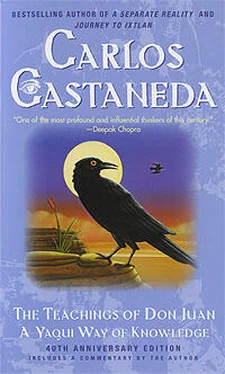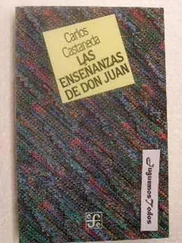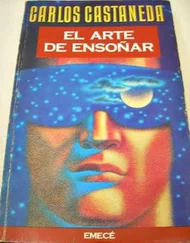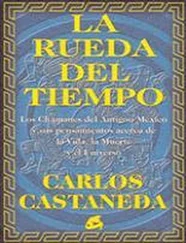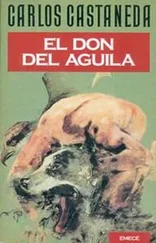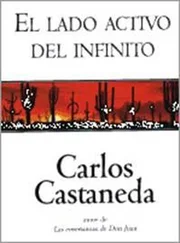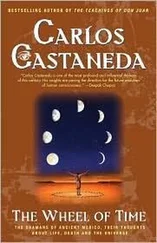The period following non-ordinary reality, on the other hand, was a long span of time; usually lasting for months, it allowed time for don Juan's discussion and clarification of the events that had taken place during the preceding state of non-ordinary reality. This period was especially important after the use of Lophophora williamsii. Because Mescalito did not have a rale, the goal pursued in non-ordinary reality was the verification of Mescalito's characteristics; don Juan delineated those characteristics during the long interval following each state of non— ordinary reality.
The second aspect of the extrinsic level was the transitional stages, which meant the passage from a state of ordinary reality into a state of non-ordinary reality, and vice versa. The two states of reality overlapped in these transitional stages, and the criterion I used to differentiate the latter from either state of reality was that their component elements were blurred. I was never able to perceive them or to recollect them with precision.
In terms of perceived time, the transitional stages were either abrupt or slow. In the instance of Datura inoxia, ordinary and non-ordinary states were almost juxtaposed, and the transition from one to the other took place abruptly. The most noticeable were the passages into non-ordinary reality. Psilocybe mexicana, on the other hand, elicited transitional stages that I perceived to be slow. The passage from ordinary into non-ordinary reality was specially long-drawn-out and perceivable. I was always more aware of it, perhaps because of my apprehension about forthcoming events.
The transitional stages elicited by Lophophora williamsii seemed to combine features of the other two. For one thing, both the passages into and out of non-ordinary reality were very noticeable. The entering into non-ordinary reality was slow, and I experienced it with hardly any impairment of my faculties; but reverting back into ordinary reality was an abrupt transitional stage, which I perceived with clarity, but with less facility to assess every detail of it.
The third aspect of the extrinsic level was the teacher's supervision or the actual help that I, as the apprentice, received in the course of experiencing a state of non-ordinary reality. I have set up supervision as a category by itself because it was implied that the teacher would have to enter non-ordinary reality with his apprentice at a certain point of the teachings.
During the states of non-ordinary reality elicited by Datura inoxia I received minimal supervision. Don Juan placed heavy stress on fulfilling the steps of the preparatory period, but after I had complied with that requirement he let me proceed by myself.
In the non-ordinary reality induced by Psilocybe mexicana, the degree of supervision was the complete opposite, for here, according to don Juan, the apprentice needed the most extensive guidance and help. The corroboration of the rale necessitated the adoption of an alternate form, which seemed to suggest that I had to undergo a series of very specialized adjustments in perceiving the surroundings. Don Juan produced those necessary adjustments through verbal commands and suggestions during the transitional stages into non-ordinary reality. Another aspect of his supervision was to direct me during the early part of the states of non-ordinary reality by commanding me to focus my attention on certain component elements of the preceding state of ordinary reality. The items he focused upon were apparently chosen at random, as the important issue was the act of perfecting the adopted alternate form. The final aspect of supervision was restoring me back to ordinary reality. It was implicit that this operation also required maximal supervision from don Juan, although I could not recall the actual procedure.
The supervision necessary for the states induced by Lophophora williamsii was a blend of the other two. Don Juan remained at my side for as long as he could, yet he did not attempt in any way to direct me into or out of non-ordinary reality.
The second level of differentiative order in non-ordinary reality was the seemingly internal standards or the seemingly internal arrangement of its component elements. I have called it the 'intrinsic level', and I have assumed here that the component elements were subject to three general processes, which seemed to be the product of don Juan's guidance: (1) a progression towards the specific; (2) a progression towards a more extensive range of appraisal; and (3) a progression towards a more pragmatic use of non-ordinary reality.
The progression towards the specific was the apparent advance of the component elements of each successive state of non— ordinary reality towards being more precise, more specific. It entailed two separate aspects: (1) a progression towards specific single forms; and (2) a progression towards specific total results.
The progression towards specific single forms implied that the component elements were amorphously familiar in the early states of non-ordinary reality, and became specific and unfamiliar in the late states. The progression seemed to encompass two levels of change in the component elements of non-ordinary reality: (1) a progressive complexity of perceived detail; and (2) a progression from familiar to unfamiliar forms.
Progressive complexity of detail meant that in each successive state of non-ordinary reality, the minute particulars I perceived as constituting the component elements became more complex. I assessed complexity in terms of my being aware that the structure of the component elements grew more complicated, yet the details did not become exceedingly or perplexingly entangled. The increasing complexity referred rather to the harmonious increase of perceived detail, which ranged from my impressions of vague forms during the early states to my perception of massive, elaborate arrays of minute particulars in the late states.
The progression from familiar to unfamiliar forms implied that at first the forms of the component elements either were familiar forms found in ordinary reality, or at least evoked the familiarity of everyday life. But in successive states of non— ordinary reality the specific forms, the details making up the form, and the patterns in which the component elements were combined became progressively unfamiliar, until I could not put them on a par with, nor could they even evoke, in some instances, anything I had ever perceived in ordinary reality.
The progression of the component elements towards specific total results was the gradually closer approximation of the total result I accomplished in each state of non-ordinary reality to the total result don Juan sought, in matters of corroborating the rule; that is, non-ordinary reality was induced to corroborate the rule, and the corroboration grew more specific in each successive attempt.
The second general process of the intrinsic level of non— ordinary reality was the progression towards a more extensive range of appraisal. In other words, it was the gain I perceived in each successive state of non-ordinary reality towards the expansion of the area over which I could have exercised my capacity to focus attention. The point in question here was either that there existed a definite area that expanded, or that my capacity to perceive seemed to increase in each successive state. Don Juan's teachings fostered and reinforced the idea that there was an area that expanded, and I have called that alleged area the 'range of appraisal'. Its progressive expansion consisted of a seemingly sensorial appraisal I made of the component elements of non— ordinary reality which fell within a certain range. I evaluated and analysed these component elements, it seemed, with my senses, and to all appearances I perceived the range in which they occurred as being more extensive, more encompassing, in each successive state.
Читать дальше
